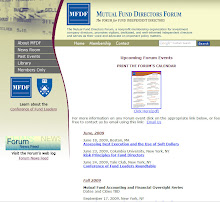The Congressional Oversight Panel (the "Panel"), chaired by Elizabeth Warren, issued the first of its series of reports on December 10, 2008.
The report begins by laying out, in the Panel's own words, the purpose of the Panel and the ambitious goal of its first report:
We are here to investigate, to analyze and to review the expenditure of taxpayer funds. But most importantly, we are here to ask the questions that we believe all Americans have a right to ask: who got the money, what have they done with it, how has it helped the country, and how has it helped ordinary people? These questions, in greater detail, form the heart of this report.
This report, issued two weeks after the Oversight Panel’s first meeting, does not attempt to answer the questions Congress and the American people have about the use of the powers granted to Treasury under the Emergency Economic Stabilization Act of 2008. Rather we seek to pose those questions clearly in the context of the events that have occurred since the adoption of the Act in October. In doing so, we intend to set the agenda for our future work and to advise the Congress as to the issues that it will need to address in the next Administration.
To that end, the report then poses ten questions it sees as the heart of the Panel's mission:
- What is Treasury’s Strategy?
- Is the Strategy Working to Stabilize Markets?
- Is the Strategy Helping to Reduce Foreclosures?
- What Have Financial Institutions Done with the Taxpayers’ Money Received So Far?
- Is the Public Receiving a Fair Deal?
- What is Treasury Doing to Help the American Family?
- Is Treasury Imposing Reforms on Financial Institutions that are taking Taxpayer Money?
- How is Treasury Deciding Which Institutions Receive the Money?
- What is the Scope of Treasury’s Statutory Authority?
- Is Treasury Looking Ahead?
- oversee the Treasury's actions,
- assess the effect of spending to stabilize the economy,
- evaluate market transparency,
- ensure effective foreclosure mitigation efforts, and
- gurantee that Treasury's actions are in the best interest of the American people.
Interestingly, one of the Panel's four members, Congressman Jeb Hensarling (R-TX), dissented from this first report, either because he feels that the Panel does not have the resources and rights necessary for effective oversight, or because he feels that there is insufficient transparency and accountability in the panel's processes.
In order to be an effective advocate for the American taxpayer, I have to ensure that every panel member has the resources and rights necessary to conduct effective oversight. I must also ensure that the panel adopts a serious agenda that truly brings transparency and accountability to the process. I have raised my concerns but thus far, perhaps due to the exigency of the circumstances, they have not yet been addressed.
Until I conclude that these important issues are addressed, and that all taxpayers can be sure that their voices are represented, I cannot in good conscience approve any reports.
Hensarling Statement on First Congressional Oversight Panel Report
Hensarling makes clear in his dissent that he opposed the TARP from the beginning. Now, serving on the body assigned to oversee the TARP, it will be interesting to see how his initial opposition to the program will figure into the Panel's work going forward.
The full December 10, 2008 report is available at: http://cop.senate.gov/documents/cop-121008-report.pdf





